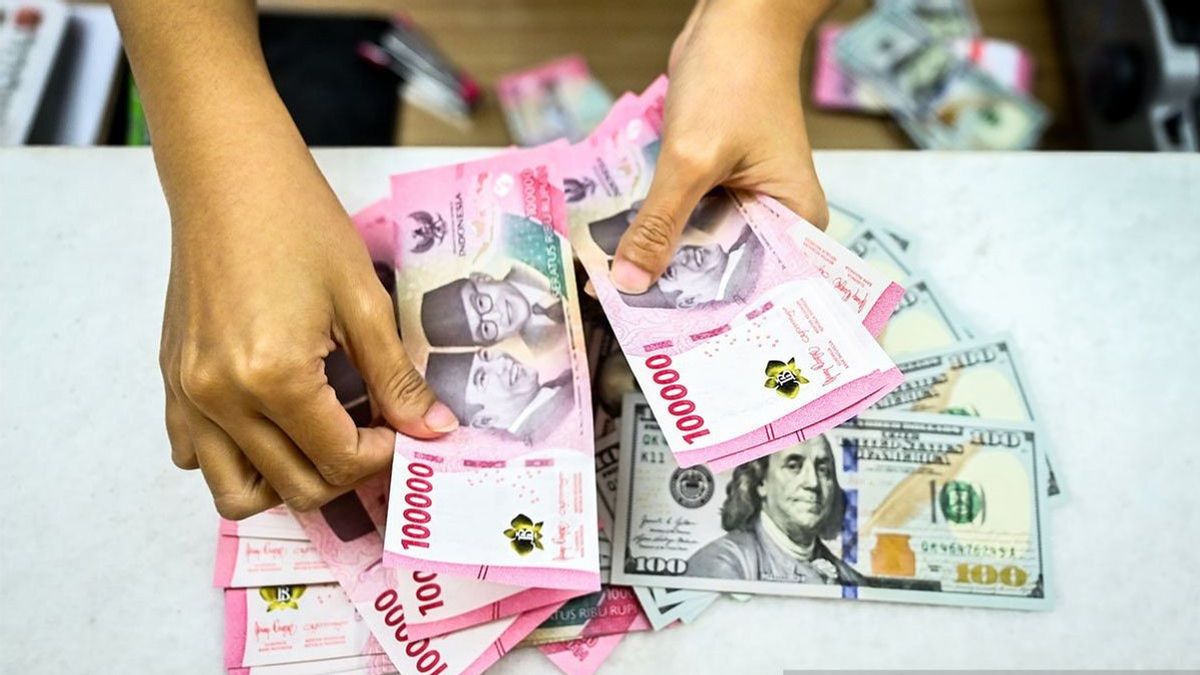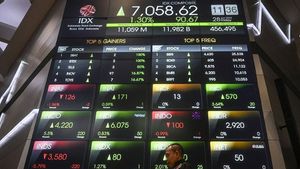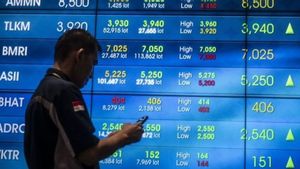JAKARTA - The rupiah exchange rate in trading Thursday, April 24, is expected to fluctuate in the price range of Rp. 16,860-Rp. 16,940 per US dollar.
To note, citing Bloomberg, on Wednesday, April 23, the rupiah spot exchange rate closed down 0.07 percent to the level of IDR 16,871 per US dollar.
Meanwhile, the Jakarta Interbank Spot Dollar Rate (Jisdor) exchange rate of Bank Indonesia (BI) closed lower by 0.10 percent to a price level of Rp. 16,880 per US dollar.
Currency observer Ibrahim Assuaibi said US President Donald Trump wanted an agreement with China where the trade rate against the country would be well below the current level of 145 percent.
"This comes after Finance Minister Scott Bessent reportedly said that China-US' ongoing trade war was unsustainable, and that he expects immediate de-escalation," he said in a statement, quoted Thursday, April 24.
In addition, Ibrahim conveyed Trump and Bessent's comments raising hopes of reducing or even completely eliminating the potential impact of high US trade rates on key economies.
Meanwhile, Trump's recent comments about China bring some potential improvements in relations, the President also said that any trade deal with China would rely on Beijing coming to the negotiating table.
"Childs have so far shown little intention to step down, after charging 125 percent of the return rates on American goods. The market is concerned about the dire impact of the trade war on the Chinese economy, given that the country had struggled even before Trump took office," he said.
Meanwhile, from within the country, Ibrahim conveyed that Bank Indonesia through the Board of Governors Meeting (RDG) in April 2025 decided to maintain the benchmark interest rate at the level of 5.75 percent.
In addition, the deposit facility interest rate remains at the level of 5 percent and the lending facility interest rate is decided to remain at the level of 6.5 percent.
Ibrahim said that the reason BI maintains interest rates was due to global economic uncertainty triggered by the tension of the trade war.
"The aggressive escalation of tit-for-tat, or the strategy of mutual retaliation, between the United States and China in determining import rates between the two countries, further exacerbates global uncertainty," he said.
SEE ALSO:
In addition, Ibrahim expressed concern regarding the level of domestic inflation because although the latest data shows that inflation is still below the BI target range, the deflation pressure that has occurred over the past few months tends to be temporary after the end of the electricity discount tariff subsidy program.
Ibrahim said that inflation is also predicted to gradually increase along with the end of the discount on air transportation rates for the Eid al-Fitr holiday period.
"The increase in aggregate requests and community mobility following various religious holidays and the period of collective leave in the months to come also has the potential to provide inflationary pressure," he said.
The English, Chinese, Japanese, Arabic, and French versions are automatically generated by the AI. So there may still be inaccuracies in translating, please always see Indonesian as our main language. (system supported by DigitalSiber.id)















